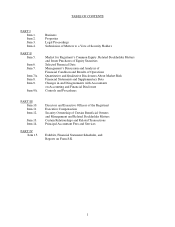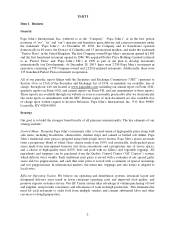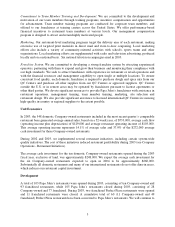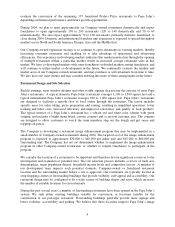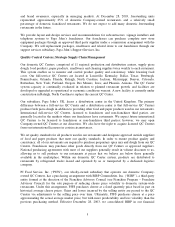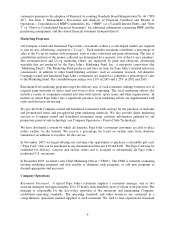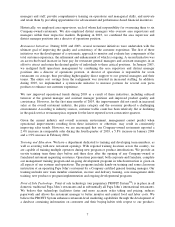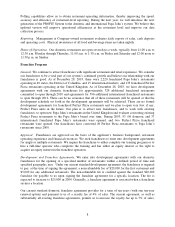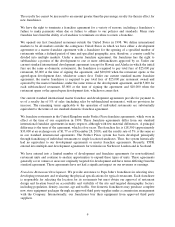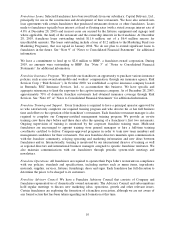Papa Johns 2003 Annual Report Download - page 12
Download and view the complete annual report
Please find page 12 of the 2003 Papa Johns annual report below. You can navigate through the pages in the report by either clicking on the pages listed below, or by using the keyword search tool below to find specific information within the annual report.
11
We currently communicate with, and receive input from, our franchisees in several forms, including
through the Company’s Franchise Advisory Council, annual operations conferences and various regional
meetings conducted with franchisees throughout the year. We are committed to communicating with, and
receiving input from, our franchisees regardless of the venue or form such communications may
ultimately take.
Reporting and Business Processes. We collect weekly and monthly sales and other operating information
from Papa John’s franchisees. We have agreements with substantially all Papa John’s domestic
franchisees permitting us to debit electronically the franchisees’ bank accounts for substantially all
payments to us including the payment of royalties, Marketing Fund contributions, risk management
services, and purchases from our Print and Promotions operations and QC Centers. This system
significantly reduces the resources needed to process receivables, improves cash flow and mitigates the
amount of past-due accounts related to these items. Franchisees generally are required to purchase and
install the Papa John’s PROFIT System in their restaurants (see Company Operations — Point of Sale
Technology).
Industry and Competition
The restaurant industry is intensely competitive with respect to price, service, location and food quality,
and there are many well-established competitors with substantially greater financial and other resources
than Papa John’s. Competitors include a large number of international, national and regional restaurant
chains, as well as local pizza operators. Some of our competitors have been in existence for a
substantially longer period than us and may be better established in the markets where our restaurants
are, or may be located. Based on independent third-party research, the United States Quick Service
Restaurant (“QSR”) Pizza category, which includes dine in, carry out and delivery, had sales of
approximately $32.0 billion in 2003, of which Papa John’s share was reported as 5.8%. Within the pizza
segment of the restaurant industry, we believe our primary competitors are the international pizza chains,
including Pizza Hut, Domino’s and Little Caesars, and several regional chains, including chains
executing a “take and bake” concept. A change in the pricing or other marketing strategies of one or more
of our competitors could have an adverse impact on our sales and earnings. Additionally, a continued
increased emphasis on carryout business by traditional casual dining restaurants, such as Applebee’s and
Outback, as well as improved quality of fresh and frozen supermarket offerings, could also have an
adverse impact on our sales and earnings.
With respect to the sale of franchises, we compete with many franchisors of restaurants and other
business concepts. In general, there is also active competition for management personnel and attractive
commercial real estate sites suitable for our restaurants.
Government Regulation
We, along with our franchisees, are subject to various federal, state and local laws affecting the operation
of our respective businesses. Each Papa John’s restaurant is subject to licensing and regulation by a
number of governmental authorities, which include health, safety, sanitation, building and fire agencies
in the state or municipality in which the restaurant is located. Difficulties in obtaining, or the failure to
obtain, required licenses or approvals could delay or prevent the opening of a new restaurant in a
particular area. Our full-service QC Centers are licensed and subject to regulation by state and local
health and fire codes, and the operation of our trucks are subject to Department of Transportation
regulations. We are also subject to federal and state environmental regulations.
We are subject to Federal Trade Commission (“FTC”) regulation and various state laws regulating the
offer and sale of franchises. Several state laws also regulate substantive aspects of the franchisor-


